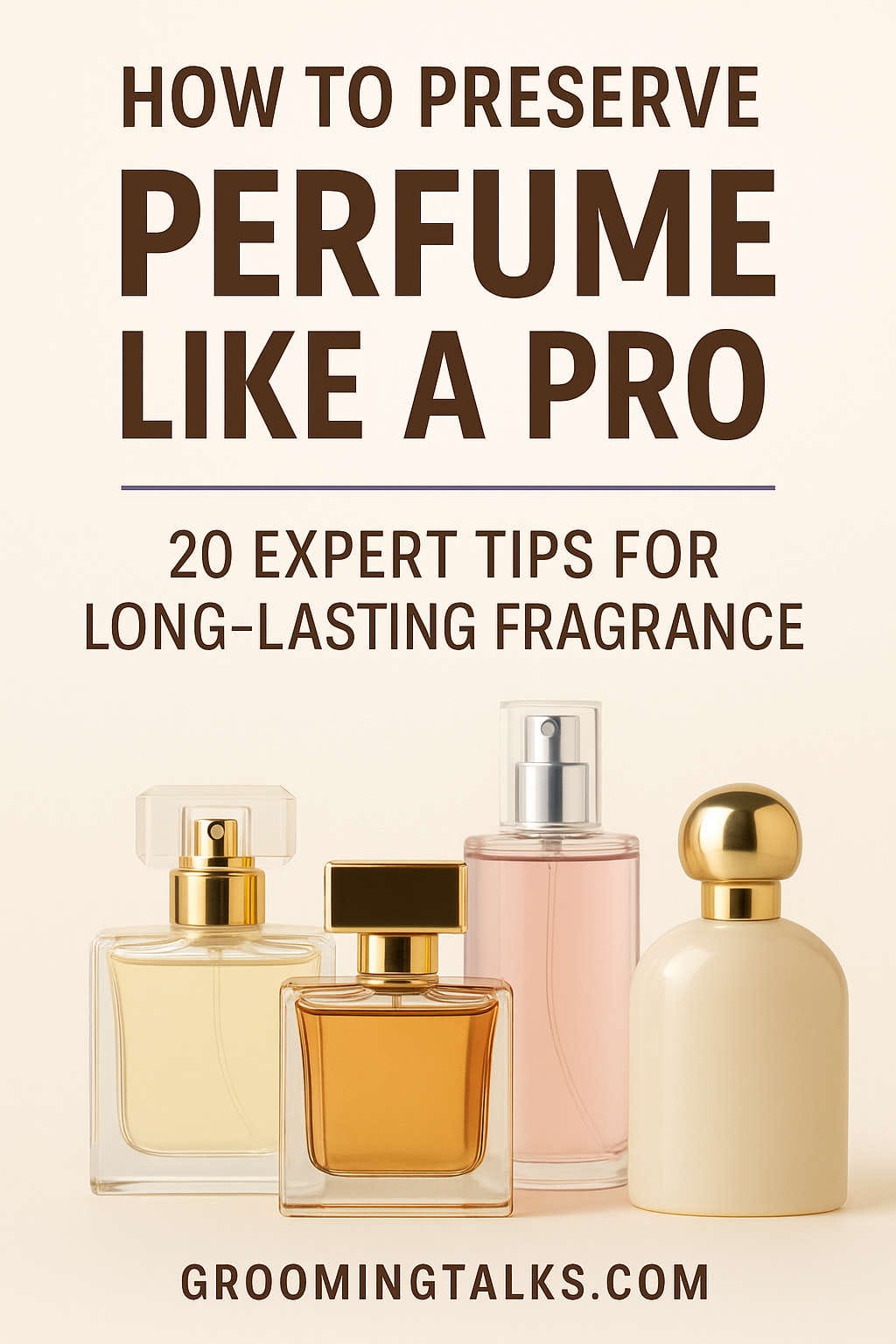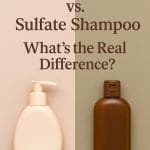Perfume isn’t just about smelling good—it’s about expression, mood, memory, and confidence. Whether it’s a signature scent or a collection of olfactory art, your perfumes deserve proper care. Sadly, many fragrances lose their magic long before the bottle is empty simply because they aren’t stored correctly.
The good news? Preserving your perfume isn’t complicated. With a little know-how and consistent habits, your favorite fragrances can retain their original character for years.
This comprehensive guide covers everything you need to know to preserve your perfume like a pro. From science-backed explanations to practical storage tips, here’s your 3,500-word manual to keeping your scents fresh, fabulous, and lasting.
Why Perfume Preservation Is So Important
Perfume is a sophisticated blend of volatile compounds, essential oils, alcohol, and water. These components are sensitive to environmental conditions. When exposed to heat, light, oxygen, or moisture, they can degrade, altering the fragrance’s original profile.
Preserving your perfume properly matters because:
- It maintains fragrance quality – Top, heart, and base notes stay true to form.
- It extends shelf life – Well-preserved perfumes can last far beyond their expected expiration dates.
- It saves money – Fragrances aren’t cheap. Preserving them ensures you get full use.
- It protects health – Spoiled perfumes can irritate skin or cause allergic reactions.
If you’ve invested in fragrances—financially or emotionally—it’s worth preserving them properly.
Understanding Perfume Shelf Life: How Long Does Scent Last?
Perfumes do have a shelf life, but it’s not always fixed. Various factors—including the type of perfume and how it’s stored—determine how long a fragrance will last. Here’s a basic breakdown:
- Eau de Cologne: Typically lasts 1–3 years. Contains the lowest concentration of oils.
- Eau de Toilette (EDT): 3–5 years. Moderate strength.
- Eau de Parfum (EDP): 5–7 years. Higher oil content makes it more resilient.
- Extrait/Parfum: 7–10+ years. Highest oil concentration and longevity.
These timeframes assume ideal storage conditions. A poorly stored EDP might degrade in two years, while a well-preserved EDT can smell fresh for a decade.
The Four Fragrance Destroyers You Must Avoid
Let’s explore the main environmental enemies of your fragrance:
1. Light
Both natural and artificial light can break down the delicate compounds in perfume, particularly UV rays. This often results in a discolored liquid and a distorted scent.
2. Heat
High temperatures accelerate oxidation and evaporation, two major culprits of scent degradation. Even a few degrees can make a difference over time.
3. Air (Oxygen Exposure)
Oxygen alters perfume chemistry through a process called oxidation. This can change how the perfume smells and reduce its complexity.
4. Humidity
Excess moisture, like that found in bathrooms, can seep into bottles and mix with the contents—especially if the lid isn’t tightly closed. This promotes microbial growth in some formulations.
20 Proven Tips to Preserve Your Perfume Like a Pro
1. Store Perfume in a Cool, Dark Place
Avoid sunny spots, windowsills, and near heat sources. Closets, drawers, or shaded shelves work best.
2. Avoid the Bathroom
It may be tempting, but bathrooms are the worst place to store perfume due to fluctuating heat and high humidity levels.
3. Keep Bottles Tightly Sealed
Ensure caps are screwed or snapped on securely. Loose caps allow air in and scent out.
4. Limit Air Contact
Each time a bottle is opened, air rushes in. Spray bottles are ideal because they limit this exposure compared to open flacons or dabbers.
5. Use the Original Box
The original packaging offers extra protection from light and air. It’s not just decorative—it’s functional.
6. Use Dark or Opaque Containers
Perfumes housed in colored or frosted glass are more resistant to light damage. If your favorite scent comes in a clear bottle, keep it in a box or cover it.
7. Don’t Shake the Bottle
Unless specifically instructed (e.g., with natural oil blends), shaking introduces air bubbles, which speed up oxidation.
8. Avoid Touching the Nozzle or Applicator
Skin oils, bacteria, and debris can contaminate the contents and alter the fragrance.
9. Use a Cosmetic Fridge (Optional)
In hot climates, a mini-fridge for beauty products is a great idea. Store perfumes away from food to prevent scent contamination.
10. Avoid Freezing
Extremely low temperatures can destabilize fragrance compounds and separate ingredients.
11. Avoid Frequent Transfers
Decanting into smaller bottles introduces oxygen and increases contamination risks. Only decant if necessary, and always use sanitized tools.
12. Track Your Collection
Keep a simple log with purchase dates and notes on scent changes. This is especially helpful for collectors.
13. Rotate Your Perfumes
Don’t let one bottle sit unused for years. Rotate based on season or occasion to ensure all your perfumes get some love.
14. Invest in a Perfume Cabinet or Storage Box
A dedicated perfume box with padded lining adds an extra layer of protection.
15. Label Bottles with Opening Dates
Not all perfumes come with expiration dates. Use removable stickers or write the date on the base of the bottle.
16. Don’t Hoard Full-Sized Bottles
Buy travel or mini sizes for variety. Large bottles take longer to use and are more prone to spoilage.
17. Clean the Nozzle Occasionally
Wipe it gently with a clean cloth to remove residue, especially for frequently used perfumes.
18. Repurpose Expired Perfume
Use it as room spray, wardrobe freshener, or linen mist—just avoid applying it to your skin.
19. Avoid Overexposure to Light During Use
Even if you store your perfume properly, don’t leave it out on a vanity for long periods.
20. Keep Away from Electronics and Radiators
Heat-emitting electronics and radiators can gradually affect nearby perfume bottles.
How to Identify a Spoiled Perfume
How do you know when a perfume has gone bad? Here are the main signs:
- Smell Changes: Sour, metallic, or musty notes indicate oxidation.
- Color Darkening: A slight shift is okay, but major darkening suggests breakdown.
- Sediment Formation: Sediment or cloudiness points to bacterial contamination or ingredient separation.
- Skin Reactions: Redness, itching, or burning means the formula is no longer safe for direct skin contact.
When in doubt, avoid applying old perfume directly to your body.
Extra Tips for Natural and Niche Fragrances
Natural and small-batch artisan perfumes often contain fewer preservatives and more volatile compounds. As a result, they need extra care:
- Store in the fridge if possible
- Use within 6–12 months
- Keep bottles tightly closed
- Avoid exposure to hands or fingers
These scents may evolve over time—but that’s part of their charm. Still, handling them with care ensures you enjoy them at their best.
Bonus: Traveling With Perfume Safely
If you’re a frequent traveler, preserving your scent on the go is just as important:
- Use TSA-approved travel atomizers
- Store perfume in a padded bag or case
- Keep away from sunlight in your luggage
- Avoid decanting too far in advance
Travel-sized perfumes often last longer if kept in optimal conditions before and after your trip.
Final Thoughts: Love Your Perfume, and It Will Love You Back
Your perfume tells a story—about you, your moods, your moments. It deserves more than to fade away on a forgotten shelf. With these tips, you can make every bottle last longer, smell better, and bring joy every time you use it.
Let’s Recap:
- Avoid heat, light, air, and humidity
- Store perfumes in cool, dark, stable environments
- Keep bottles sealed and clean
- Rotate your collection to enjoy all your scents
- Be mindful of expiry signs and treat your collection with care
Perfume Preservation Checklist
✅ Store in a dark, cool place
✅ Keep away from humidity and bathrooms
✅ Use original packaging when possible
✅ Avoid shaking or touching the nozzle
✅ Minimize air exposure and avoid decanting
✅ Track opening and usage dates
✅ Consider a mini-fridge in hot climates
✅ Rotate fragrances based on season
✅ Don’t overstock large bottles
✅ Watch for spoilage signs
Share Your Tips
Do you have a unique perfume preservation hack or a fragrance that’s lasted a decade or more? We’d love to hear from you! Drop your stories and suggestions in the comments.
And if this guide helped you, don’t forget to bookmark or share it with fellow fragrance lovers. Because great scents are made to be savored—for years to come.






